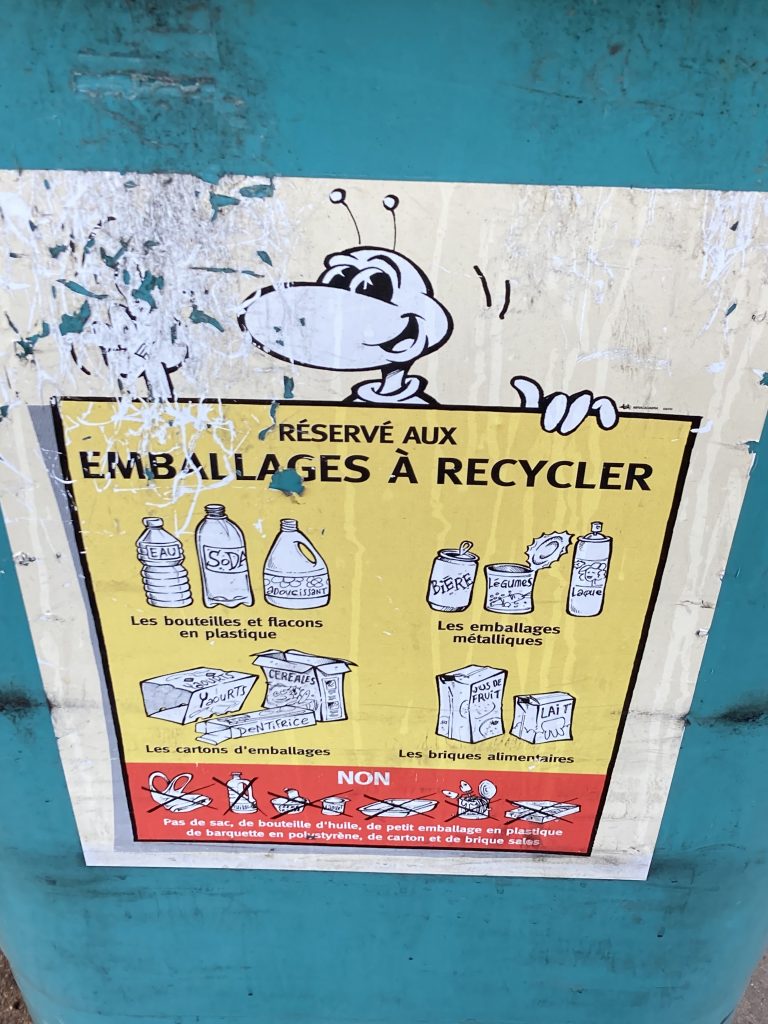Circular Economy: “France risks not meeting its 2025 targets”- European Commission Report
By Houmi Ahamed-Mikidache
The European Commission is today publishing a report on circular economy. Entitled “Waste Early Warning Report”, the report identifies the EU recycling targets. Member States are at risk of not meeting the recycling targets for municipal waste and packaging waste set for 2025. They could neither reach the reduction target for landfill by 2035. France might not reach its circular economy target.

The situation in Europe
18 Member States may not meet one or both of the 2025 targets. Estonia, Finland, France, Ireland, Latvia, Portugal, Spain and Sweden may not meet the municipal waste target. Bulgaria, Croatia, Cyprus, Greece, Hungary, Lithuania, Malta, Poland, Romania and Slovakia may not meet the targets for municipal waste and all packaging waste by 2025.
Some countries also continue to landfill most of their municipal waste. They are unlikely to meet the 2035 landfill target. Nine Member States are on track to meet the 2025 targets. Austria, Belgium, the Czech Republic, Denmark, Germany, Italy, Luxembourg, the Netherlands and Slovenia are those countries.
The figures in France
Based on the analysis of the data collected and current policies, France is considered to be at risk of not meeting their target. The 55% target set for 2025 for preparing for reuse and recycling its municipal waste. There is a risk that the country will not reach this targer. It applies specifically to plastic packaging.
According to the report’s data, the recycling rate in France is steadily increasing from 42.9% in 2016 to 45.1% in 2018. But it has since declined. In 2020, it was 42.7%. In addition, new waste recycling calculation rules are beginning to apply. It could lead to lower recycling rates. The landfill rate rose from 22.4% in 2016 to 18.1% in 2020. It should bring closer to the 2035 target. France has a relatively high rate of municipal waste incineration. It was 38.1% in 2020, above the EU average of 27%.
Recycling rates for packaging waste in France are above the recycling targets. France has met the targets for most types of packaging waste (paper and cardboard, metal, wood and glass). However, the recycling rate of plastic packaging waste is far from the target of 50% (26.9% in 2019). The country is facing several difficulties.
The Biowaste Source Sorting Puzzle Coupled with Plastic
Collection and treatment of municipal biowaste is problematic and insufficient. Separate collection of biowaste is not common France. There is a lack of collection of bio waste and an effort has to be made to provide infrastructure. It is necessary to multiply composting plants and digesters, biogas reactors, a process of anaerobic digestion of organic materials from various sources. But the issue of bio waste, organic waste, is, according to the report, a recurring problem in Europe. It constitutes a third of municipal waste.
As far as plastic is concerned, in France only a small part of the population is covered by a separate collection system, stresses the report. The collection system for collecting plastic packaging is deficient. The introduction of set-aside systems for plastic packaging can increase these capture rates. Extended producer responsibility regimes do not cover commercial plastic packaging waste. Furthermore, in some parts of the country, these schemes do not cover all types of plastic packaging.
Recommendations: a note of hope?
According to the European Commission report, France has introduced a number of new measures. It should improve the results in the years to come. But it takes a long-term observation period to observe the effects, the report says. It recommends therefore a significant increase in efforts to reach the 2025 targets. To improve the management of plastic and municipal waste, the report recommends that France support the preparation for the reuse of municipal waste and reuse systems for packaging.
France should improve the sorting and collection of bio waste at the source and ensure that sufficient capacity is devoted to its treatment. The report also recommends that France implement a waste payment system that covers the entire population and provides more incentives for the public to sort waste at source. The EU report advises France to improve and extend separate collection systems. France should separate especiallyplastic waste, by guaranteeing the collection of all types of plastic packaging waste.




